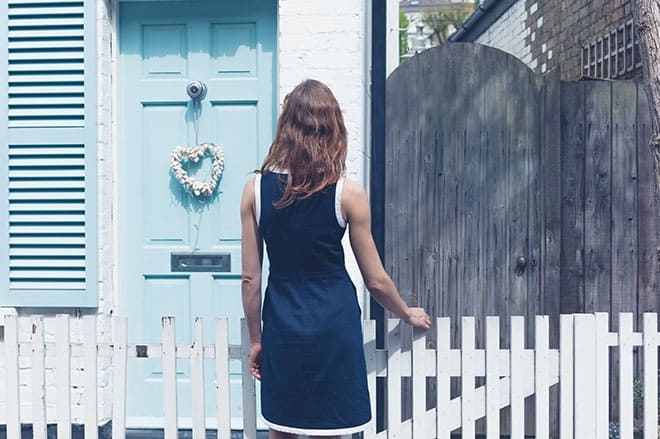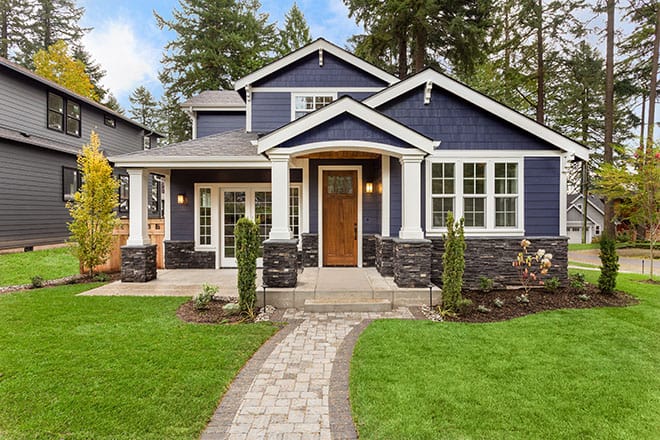

Buying a first home is an exhilarating time, but it can also be a frightening one. It is probably the most significant financial decision you’re ever going to make, and there are lots of things to consider before you take the leap. It’s easy to get carried away with the dream of the perfect home and to worry about things like how many bedrooms, bathrooms and the size of the garden, but if you’re not ready for a mortgage, you will end up facing considerably bigger problems. Are you prepared to own your own home and can you handle the responsibility? If you can confidently say that each of the following statements is true, then the answer may well be yes!
You Know How to Budget
Some people are taught how to budget from an early age, but it’s not necessarily something we know how to do without years of experience. It takes trial and error to work out a budgeting system which works best for your lifestyle and spending habits. You need to get into a routine of knowing exactly how much money is coming in and going out every month and can meet all your monthly obligations without needing to borrow money. Even better, if you manage to do this and put some aside into savings, your budgeting skills are ready.
You’re in Control of Your Debt
While having debts doesn’t necessarily mean that you’ll be refused a mortgage, you need to ensure that you’ve got them under control. You need to be able to pay off your mortgage every month and continue to repay any other debts you have. Having high-interest debt is not a good idea when applying for a mortgage, so it’s best to clear those, but other debts like car payments or student loans are fine if you can comfortably afford them each month.
You Don’t Need a Landlord
If you’ve been renting your home (or living with parents), it’s quite possible that you’ve never had to face certain aspects of maintaining a home. When something breaks or leaks in your home, someone else will sort it out and pay for it, but that luxury disappears when you own your own home. You will be responsible for fixing and maintaining every part of your home. Do some research around common home maintenance tasks to make sure you know what you’re getting yourself into.

You’ve Got a Regular and Reliable Income
Your mortgage is a lengthy financial commitment, and you need to be as confident as possible that you’ll be able to meet your payments both now and in the future. In addition to your salary, mortgage lenders often like to see that you’ve been employed in the same job for at least two years. It is why being self-employed can make getting a mortgage more difficult as there is likely to be fluctuations in the amount of money you earn from month to month. Missing mortgage payments is a serious problem and may result in your home being repossessed, so if your income is unstable, now is not the right time to buy a house.
You Have a Good Credit Score
Mortgage companies have a minimum credit score for mortgage which you’ll need to meet in order to get the best interest rates. If you have a poor credit score, it doesn’t necessarily mean that you won’t be able to get a mortgage, but you’ll end up paying more for your home in the long run. A better credit score means you’ll pay less for your home.

You’re Ready to Settle in One Place
Buying a home is a more permanent decision than choosing somewhere to rent. You should know that (barring unforeseen circumstances) you’ll be happy to live in one place for at least five years. If you haven’t found a career or employer that you’re happy with and would like some flexibility over your location, or you’re considering a round-the-world trip in the next year or so, it’s possibly not the time to lay down roots.
You Have a Down Payment
You will struggle to find a mortgage lender who will give you a mortgage without a down payment. The down payment should be as high as possible to get you the best interest rates on your mortgage. If you’ve been able to save up the money, it’s a very good sign that you’re in an excellent financial position and that you’re responsible enough to handle a mortgage.
You Have an Emergency Fund
In addition to your down payment, you should also think about saving money in a ‘house emergency fund.’ If you have disasters around the house like a broke heating system or a leaking roof, this fund will mean you can take care of it quickly. These savings can also act as a back-up so you can cover the mortgage payment and utility bills should face unexpected issues like becoming too unwell to work or lose your job.
YOU MIGHT ALSO LIKE:
Your Guide to Living in a Glamorous Vegan and Cruelty-Free Household
























